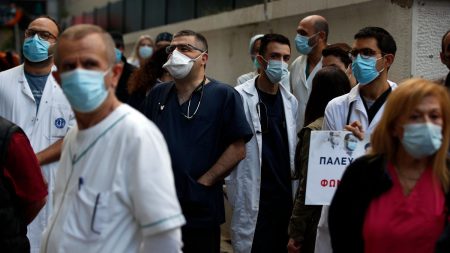Concerns surrounding antibiotic resistance have escalated significantly, especially with projections suggesting that if effective interventions are not implemented, the consequences could be dire, leading to tens of millions of deaths by the year 2050. Recent data released by the European Centre for Disease Prevention and Control (ECDC) indicates a troubling trend: the usage of last-resort antimicrobial drugs is increasing, raising alarm among health experts. In 2019 alone, antimicrobial resistance played a role in nearly five million deaths, and without decisive action, forecasts predict that over 39 million individuals could succumb to infections resistant to antibiotics in less than three decades. The rise in resistant strains of bacteria, viruses, fungi, and parasites poses a grave challenge, as traditional treatments become less effective, complicating efforts to manage infections.
At the heart of the problem lies the overuse and misuse of antibiotics across various healthcare settings, which has underlined the urgent need for systemic changes. The ECDC’s report highlights that, despite previous initiatives aimed at curtailing unnecessary antibiotic prescriptions, these efforts appear insufficient. Between 2019 and 2023, no EU member state demonstrated a significant decrease in antibiotic consumption. ECDC Director Pamela Rendi-Wagner articulated these concerns, stating that, currently, Europe appears to be moving in the wrong direction. Among the 24 participating member states providing consistent data during this period, a concerning 14 countries, including Bulgaria, Italy, and Portugal, noted higher total antibiotic usage in 2023 than in 2019, thus undermining public health progress.
Further compounding the issue, the report indicated a marked increase in the consumption of reserve antibiotics in hospitals, which are critical treatments reserved for severe infections caused by multi-drug-resistant organisms. This category saw its proportion rise from 3.4% of total antibiotic consumption in 2019 to 5.4% in 2023. While this trend might reflect an increasing need to address resistant infections, it also signals a potential need for countries to revisit and potentially revise their guidelines on the utilization of reserve antibiotics. Health organizations such as the World Health Organization maintain that these potent drugs should only be employed as a last resort, emphasizing the necessity for sustained vigilance in their administration.
In addition to the immediate challenge posed by rising antibiotic use, the ECDC report highlights the broader context of the European Union’s progress in achieving its health goals. Despite some strides forward, it appears that there is a sluggish advancement toward the targets established for 2030 by the European Council. These goals include a 20% reduction in overall antibiotic consumption in humans compared to 2019 levels and ensuring that by 2030, 65% of all antibiotics prescribed fall within the more accessible class deemed less likely to induce resistance. The current trajectory indicates that unless more robust strategies are adopted, achieving these ambitious targets will remain elusive.
The implications of unchecked antibiotic resistance extend beyond health care, potentially affecting economies and public health systems across Europe and worldwide. As infections increasingly become resistant to existing antibiotic therapies, healthcare costs could surge due to prolonged hospital stays, the necessity of more expensive medication options, and the general burden on healthcare systems. These trends not only threaten individual health but could lead to a resurgence in previously manageable infectious diseases, thus reversing decades of medical progress and creating a healthcare crisis of unprecedented proportions.
Finally, addressing antibiotic resistance necessitates a concerted effort across multiple sectors, including government, healthcare providers, and industry. Public health campaigns aimed at educating both healthcare professionals and the general population about the dangers of antibiotic misuse must be prioritized. Enhanced surveillance systems to monitor antibiotic consumption and resistance patterns will also be vital in identifying trends and adjusting strategies accordingly. By fostering collaboration and committing to evidence-based policymaking, the EU has an opportunity to stem the tide of antibiotic resistance and safeguard the efficacy of these lifesaving medications for future generations.














